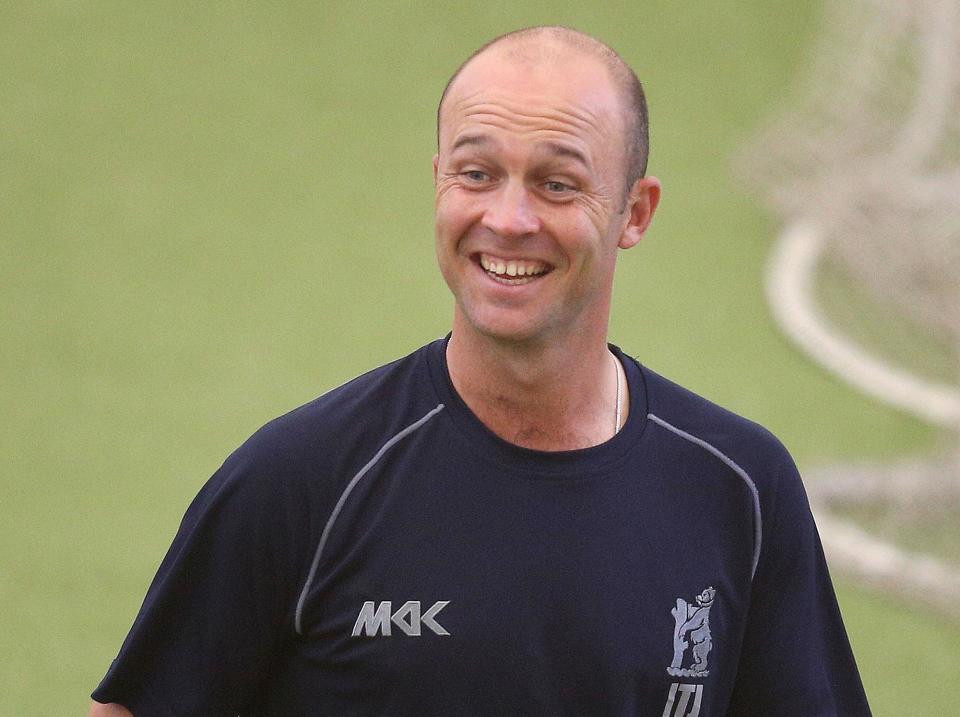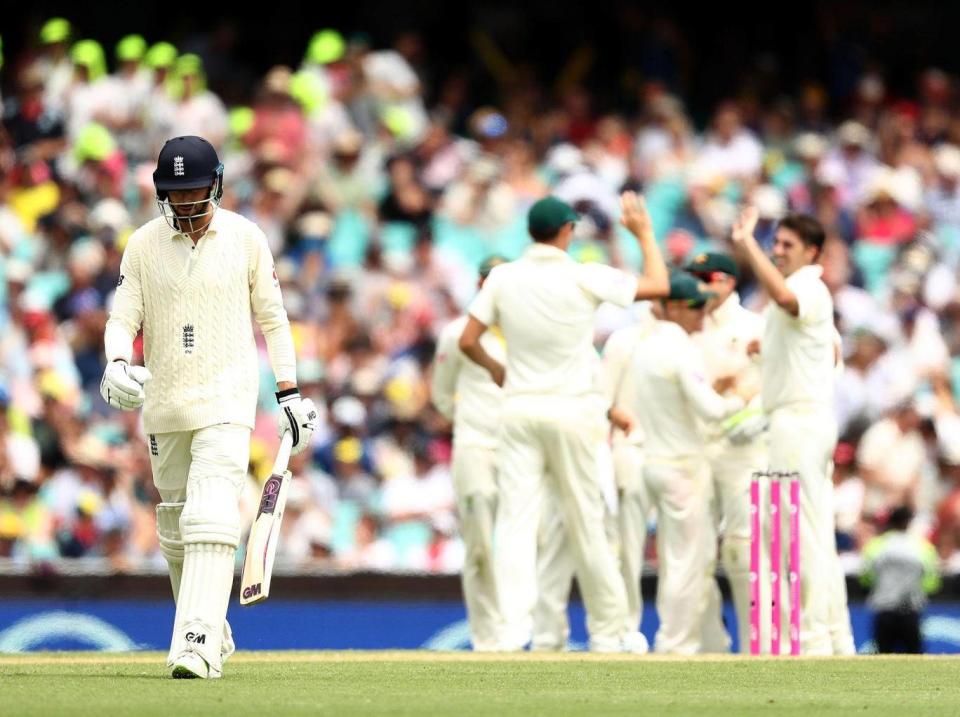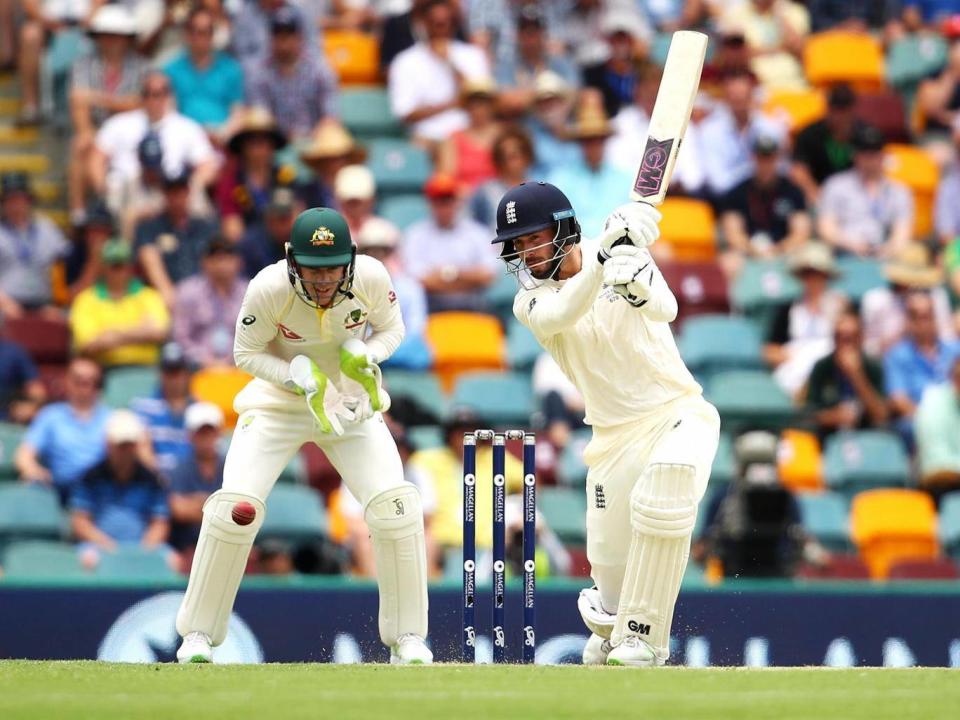Jonathan Trott interview: England, James Vince, the Under-19 World Cup and a career coming full circle

There were times this winter when the England were crying out for Jonathan Trott to walk to the middle and build the kind of innings that became his trademark for a four-year period between 2009 and 2013.
In a team packed with strokemakers like Kevin Pietersen and Ian Bell, Trott would often provide the glue to bind the England innings together, doing the simple things well and rarely throwing his wicket away with a loose shot. Careless he wasn’t.
The same accusation could hardly be levelled at James Vince who, despite possessing a technique tailor made for Test cricket, continually frustrated Down Under. Time and again, Vince would elegantly sashay his way to 25 before aiming an ambitious drive off both front or back foot.
More often than not, the ball would then nestle, not against the boundary rope but into the mid-drift of first slip. It’s hard to recall Trott offering such consistently easy pickings to a bowling attack.
The Warwickshire man, who played his final Test as an opener back in May 2015, is spending this winter working as a batting coach with the England Under-19 side for a World Cup campaign that begins against Namibia in Queenstown on Sunday.
Speaking to The Independent from England’s base two hours south of Christchurch, Trott admits that shot-making has completely altered the game over the past decade - but he’s adamant that the fundamentals of run-scoring still remain the same.
“I’m always happy with guys getting hundreds, it doesn’t matter how quickly they get them,” he says. “There aren’t many drawn games now so there’s plenty of time for batsmen to build an innings. My attitude never really changed. The important thing for me was to find a rhythm and stick to it.
“There are ebbs and flows in innings, you go quicker at some stages and slower at others but you have to earn the right to score runs. I think that’s the key, particularly in an era when players are batting so much in one-day and Twenty20 cricket.”
Vince’s innings of 82 at Brisbane and 55 in the second innings of Perth gave tantalising glimpses of his unquestionable talent. The problem for him as he prepares for a potentially make or break tour of New Zealand is that it’s his mode of dismissal rather than his stroke-play which will be ingrained on Australian memories.

“He (Vince) looks very good at times but it’s all about him converting these starts,” says Trott. “I was impressed with the 80 he got in Brisbane before he got run out but that’s the fine lines that you get in Test cricket.
“You have to put a high price on your wicket. Hopefully he would have learnt from his experiences. He’s a good player but when you get your chance you have to take it.”
This Under-19 World Cup marks another step in a career that, in many ways, has now come full circle.
Trott travelled to the tournament with South Africa in 2000 and exited ingloriously – with his home country suffering the indignity of being bundled out of the competition without completing a game.

Given that South African side included the likes of Trott, future Test captain Graeme Smith, Albie Morkel and Jacques Rudolph, it’s safe to say that there would have been a collective sigh of relief as the Sri Lankan weather rained on their parade.
“Pakistan beat Kenya because they had bowled first before the rain came,” says Trott. “Our other two matches were abandoned and then Nepal beat Kenya so that was us done. We had such a good side, we were so confident but we ended up in the Plate competition, playing against teams like America and Holland.”
England have already had one warm-up match called off in New Zealand but the weather looks set fair in Queenstown, the global home of extreme sports. It’s now the job of Trott and head coach, Jon Lewis, to ensure that England’s assault on a competition they haven’t won since 1998, doesn’t go downhill quicker than a passing zorbing ball.
With Trott looking after the batsmen, though, any rushes of blood should be kept to a minimum.

“I’m relatively new with these guys but I am impressed with the shots and the way that their game is developing and progressing,” he says. “I’m hesitant to use the word potential because potential is a dangerous word to throw around. It’s a bit flaky – if it’s not fulfilled then it’s a waste of time.
“They certainly look like they’re a good bunch of guys and they’re hungry to learn, which is a good thing at this age.
“It’s a totally different game now. The way these guys are hitting the ball – it’s very different to the way it was played in my day. We’ve very much been in favour of these guys being their own players but it’s important that they realise they’re playing in a World Cup so have to react to pressure situations and be switched on.
“They need to think about their roles in the side, they need to play their own game but this is a stepping stone to great things and they need to be prepared to develop their own all-round game.”
Trott ground every ounce of potential out of his game while in England colours. His is a blueprint that the next generation, as well as some of the current crop, would be well advised to follow.

 Yahoo Sport
Yahoo Sport 





































